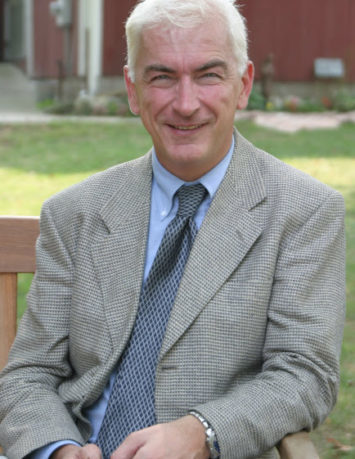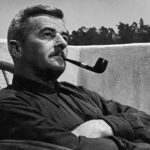Paul Connell

Paul Connell was born on the North Shore of New Brunswick, Canada; on his father’s side he is descended from the earliest French settlers of North America, counting his ancestors among the companions of Samuel de Champlain at the Port Royal settlement in Acadia in 1605. Considering himself first and foremost a teacher, both inside and outside of the classroom, Dr. Connell takes as his patron St. Philip Neri, who was known as the “Roman Socrates”. Neri shunned the traditional methods of bringing the youth of Rome into the fold, and instead took to the streets, engaging in conversation with all and sundry. Dr. Connell follows his example as the Director of Studies of the College’s Rome Program, where he currently welcomes students from Thomas More, Ave Maria University in Naples, Florida, and Aquinas College in Grand Rapids, Michigan. Dr. Connell takes seriously the words of A.G Sertillanges, the Dominican theologian of the last century:
“Learn to listen, and listen, first, to anyone. If it is in the marketplace, as Malherbe asserted, that one learns one’s language, it is also in the marketplace, that is, in everyday life, that we can learn the language of the mind. A multitude of truths arise out of the simplest conversations. The least word listened to with attention may be an oracle. A peasant at certain moments is much wiser than a philosopher.”
Dr. Connell has had over twenty-five years teaching experience on both the high-school and college level. His current focus in Rome is on Virgil, Dante, and Shakespeare. Dr. Connell has had many fine teachers and mentors over the years, but they can be reduced to three: Sister Elizabeth Paterson, his first grade teacher at St. Joseph’s School in Newcastle, New Brunswick, who taught him how to read and write; Dr. Louise Cowan, his major professor at the Thomas More College of Liberal Arts, who taught him that poetry is true; and finally, Dr. Bainard Cowan, his dissertation director at Louisiana State University, who re-taught him to read and write, finishing the process that Sister Elizabeth began when he was five. Dr. Connell’s intellectual pedigree is varied, but one thinker outside his major field of study deserves particular mention: the twentieth-century German-Italian theologian Romano Guardini. Guardini could see, at the first half of the twentieth century, the seeds that were to germinate into our current religious challenge and cultural crisis.
 Civilized Reader:
Civilized Reader: 
